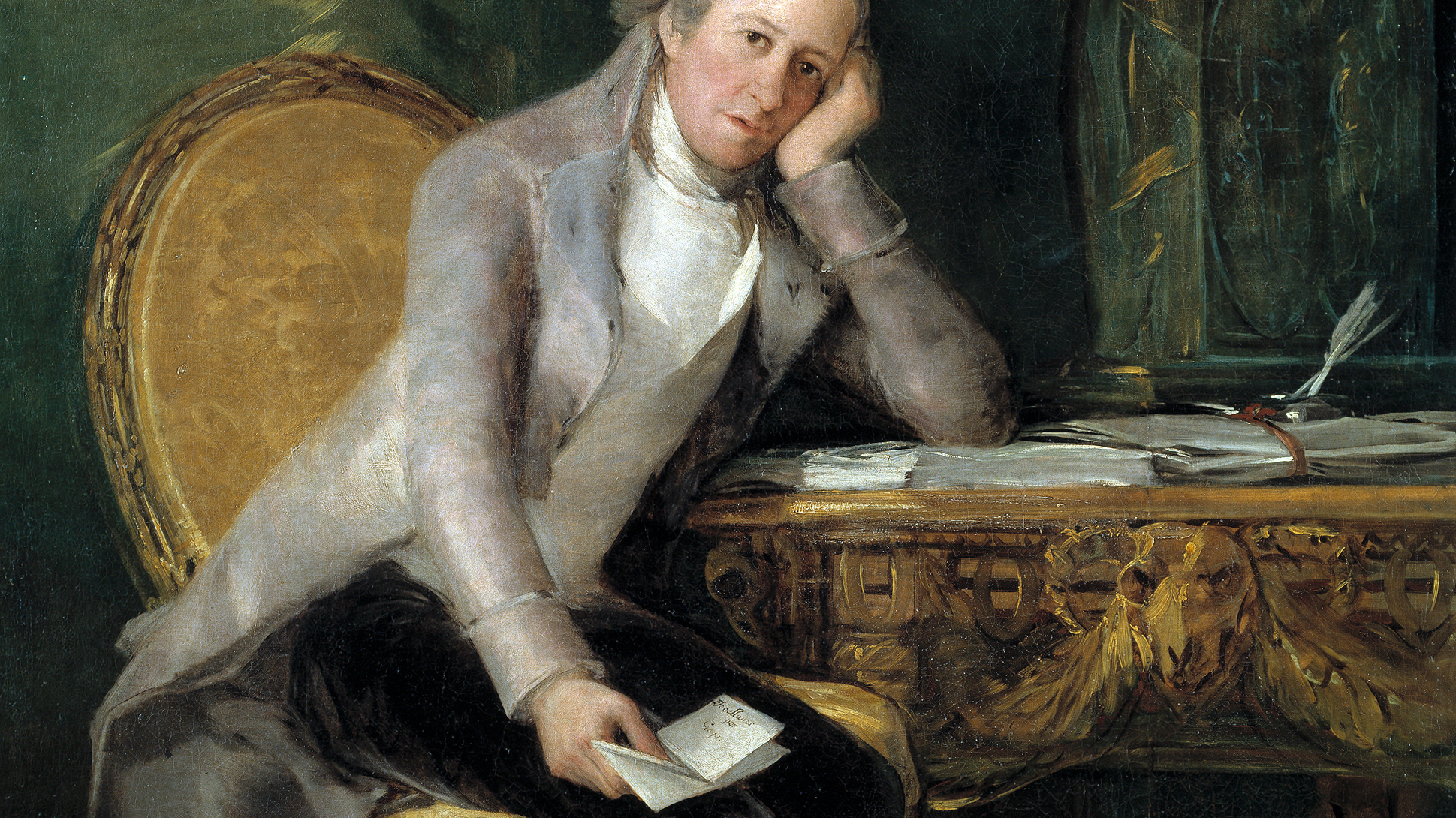Jovellanos :: Goya
What is the distinction between literary fiction and genre fiction? Are these sundered and foreign countries, or do they share a common border? If they do have uncertain geographies, debated borders, hesitant small zones of hashed-out landmass, belonging to neither and both, then where is this shadowed half-place? How do we know when we have crossed from one land into the other?
Genre is often defined as anything that isn’t literary, encompassing among other things Romance, Crime, Fantasy and Science Fiction. But this is unhelpful unless we can define what we mean by literary fiction without resorting to an endless circular tautology. And therein is the rub. ‘Literary fiction’ as a term isn’t itself a very useful one. ‘Mainstream’ or ‘general’ fiction are perhaps better at capturing the bookshop shelf that is often named ‘Literature’, although it is debatable whether bookshop shelving tells us much past which titles tend to sell better when shelved beside which other titles.
Can we take anything more informative from terms like mainstream or general fiction? Recognisable literary fiction is often neither general in its topics, nor mainstream in its appeal. Part of the problem, I think, is that the ‘literary fiction’ published in a lot of small presses is a genre unto itself, which means we tend to confuse the literary fiction genre with the use of ‘literary fiction’ in a broader sense to mean either ‘general fiction’ or ‘good fiction’, for a given definition of good, or maybe ‘word-crafted fiction’. If genre represents a set of tropes readers are familiar with, bleeding into archetypes, the sort of ‘Lit-fic’ stuff I’m thinking of is often both trope-driven and (often) quite dominated by masculine voices. There’s often a lot of Yang, very little Yin. For some examples of the sort of literary tropes I’m thinking of: the ageing (usually male) university professor who is having an affair with a younger (usually female) student as a part of his life crisis / the adult (usually male) big city escapee returning to visit the small town where they grew up / the artist struggling with lack of success and mental health problems (this one usually ends up standing in the rain at the end of the story, experiencing some sort of mild life epiphany). So, anyway, I don’t think lack or presence of tropes alone is a very useful yardstick.
Both Moorcock and Le Guin in their various essays have used a Realistic / Imaginative dichotomy, where realistic fiction is attempting to generate a verisimilitude of the human experience, and Imaginative fiction is more obsessed with possibility, novelty, the weird. This helps us approach the topic more sensibly I think. The divide here is perhaps between ‘what is it like to be’, and ‘what might it be like to be.’
This seems to help a little, but I think we need to add at least one more layer onto this–poetic and prosaic–which addresses the level of writing that is focused more on sounds of words, rhythms and cadence at one end (poetic) and a clear, untroubled experience of the narrative dream at the other (prosaic). I think you can have any combination of these. Prosaic realistic, prosaic imaginative, poetic realistic and poetic imaginative, and it’s all a sliding scale too, so that some works are borderline or drift from one sphere into another.
A third dimension, if we want to create a cube, is challenge vs entertainment. Or possibly, philosophy vs escape. This plays into the fundamental emotive reward. Being challenged, either morally or intellectually, and having one’s perspective fundamentally changed lies at one end. Obtaining some respite and relief, excitement and entertainment lies at the other. So then. Let me see. Very roughly I might divide up a few of the more ‘literary’ SFF authors like this:
Poetic imaginative escape = Bradbury
Prosaic imaginative philosophy = Vonnegut
Poetic imaginative philosophy = Le Guin / Atwood
I’m simplifying vastly of course. There is life philosophy in Bradbury, especially works like Dandelion Wine, and Vonnegut can pull out some beautiful turns of poetical phrase. Le Guin’s Earthsea books or her Gifts, Voices, Powers series are a touch more prosaic, whereas Always Coming Home is firmly in the poetic camp.
So. Yes. Anyway. That’s my take on this. Ramble, ramble, mumble, mumble and so on. This perspective may or may not be useful to anyone else, although, looking at fiction in this way has tended to help me clarify the static and buzz in my own head. It can help, a little, with thinking about where I want to be coming from with a given work.
(reposted and modified from a response to a Writing Excuses podcast)


